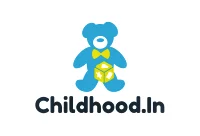The most important progress you will notice in your little one’s 2 month old baby development milestones process, is his rapid growth in size and weight gain.
While your life with your little one may be settling into a relatively more predictable routine; there could be things that are keeping you guessing. So here are some details to remove the guess work.
In this article:
- Physical Development Milestones
- Hearing & Visual Milestones
- Touch & Smell Milestones
- Cognitive Development Milestones
- Emerging Skills
- Advanced Skills
- Baby Care for Your Two Month Old
- What You Can Do As Parents?
- When to Be Concerned?
Physical Development Milestones
- Your baby will grow by at least 2 inches or more.
- Will try to reach for almost everything in sight.
- He’ll frequently use his fists to grasp things and shake rattles.
- Will be able to lift his head when on his belly and hold at a 45 degree angle a little longer.
- He may even be able to raise his chest.
- Will do push-up kind of movements while moving his arms.
- His salivary glands begin to function and he will start drooling.
Hearing & Visual Milestones
- He may be able to focus his eyes on a specific object.
- Next to self-expression by cooing, babbling and smiling, looking at his own reflection in the mirror may become one of his favourite pass time.
- Typically, baby vision at two months will have developed to see up to 2 feet, therefore allowing him to not only recognise your face, but to also notice your movements and follow you.
- Starts reacting to various primary colours and bold shapes.
- The discovery of his hands and feet will be a huge revelation for him and will keep him engaged for a good part of the day.
- He’ll regularly hold his feet up and study his fingers.
- He will have a fully developed hearing.
Touch & Smell Milestones
- Your baby will feel very comforted when you hug, rock or cuddle him.
- He may chew upon his toys to understand and establish their textures.
Cognitive Development Milestones
- Recognises familiar looking faces even from a distance.
- May sometimes show feeling of boredom.
- He likes to inspect and feel things around him.
- As his memory is steadily improving, you will notice him perk up with facial expressions when he sees you after a brief while.
- Will begin to understand that he can use his fingers to grab things.
Speech Development Milestones
- Your baby’s communications skills will have improved to a few grunts and gurgles.
- He will often communicate with you through throaty gurgles, babbles and melodic coos; as he is as delighted to hear his own coos, grunts and gurgles as you are.
Emerging Skills
- Will try and close his fingers into a tight fist.
- His hearing improves drastically, therefore making him hear much better.
Advanced Skills
- Can briefly hold a stuffed toy when placed in his hands.
- Unlike an involuntary reflex a few weeks ago, he will now grip your fingers (or toys) with a sense of purpose.
- The best part of two month baby development milestone is that you will see the first hints of a genuine social smile from him. Smile back and he will generously reciprocate to you. Treasure those beautiful moments!
Baby Care for Your Two Month Old
- Since your baby’s movements are increasing, carry out all precautions to make sure there are no sharp edges or corners around him.
- Be vigilant and ensure you keep small objects and toys away from him, as he’s prone to putting things in his mouth.
What You Can Do As Parents?
- Play with his fingers and toes often. This helps him to learn how to control his movements.
- For better control of head and neck movements, help him lie down on his tummy.
- In between tummy time sessions, make sure he gets lots of chances to flex those little muscles by mixing up his positions and his point of view.
- Adhere to your baby’s immunisation schedule.
- Massage him regularly, as skin to skin contact is highly recommended by most childcare experts.
- Try different soothing techniques like singing or playing soft music when your little one cries. This can make a significant difference over time.
- Ensure he gets enough space to kick his legs and punch his arms in the air. This will help him develop muscles he will require for crawling and rolling, to start with, and for walking later on.
When to Be Concerned?
- When your baby is not bringing hands to his mouth.
- Is not turning towards the direction of loud sounds.
- Is not focusing at things with his eyes.
- Is not reacting to known faces.
- He is unable to hold his head while lying on his tummy.
Note: Each baby is different and therefore tends to grow at a different pace. Chances are that your little one may have crossed certain milestones already, or is probably a little behind on a few others, which is normal. If you still feel there is something of concern, do speak to your paediatrician/registered professional child healthcare provider.

